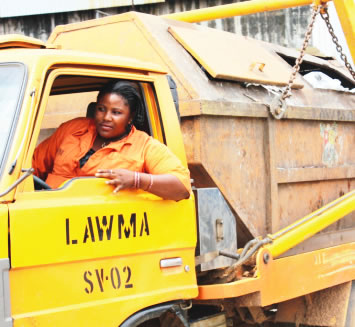RE: FEDERAL GOVT TO BAN IMPORTATION OF HEAVY DUTY TRUCKS EXCEEDING 10 YEARS FROM JAN 1ST 2020
On the 9th July, 2018
the Federal Government through the Secretary to the Government of the
Federation, Mr Boss Mustapha took a decision to ban the importation of
trailers and tankers exceeding ten years (10yrs) from the date of
manufacture into the country, the ban which is to take effect from January 1, 2020.
The decision was made as part of the resolutions of the stakeholder’s
forum he convened to address the menace of crashes involving haulage
vehicles in Nigeria.
The
meeting was instructive due to the Road Traffic Crash (RTC) on Otedola
bridge of the Lagos-Ibadan expressway where over 55 vehicles were burnt
and multiple fatalities recorded last year.
MY TAKE
The motive behind the decision is very laudable considering the un-road-worthy
some of the heavy duty trucks plying our roads have become. Some trucks
are not worth being at the parking station let alone on the road.
However, before we a place a ban on trucks that are exceeding 10 years
from the date of manufacture, we must consider some factors which may
hinder the seamless movement of goods in the section in the long-run if
the policy is to kick start come January 1st, 2020.
By
2020 deadline invariably, it means that Trucks manufactured in year
2010 or later will be acceptable by the Government for importation.
Trucks
in these categories are very appealing, comfortable and automated for
easy driving however in terms of repair and maintenance it is another
kettle of fish. For example the truck parts may not be readily
unavailable due to the saturation of truck spare parts whose
manufacturing history is dated in the 80’s or early 90’s. Trucks of
these caliber are usually victims of bad diesel which could easily
destroy their injectors hence frustrate the truck owners into dumping
them in the short-run due to cost of replacement of such nozzles, hence
will have a long-term impact in logistics if such results is spread
across board is also on the high side. As we all know, the Nigerian
diesel market is highly saturated with poor and extremely toxic diesel
quality.
The technical know-how of majority of our truck mechanics is another
factor to consider considering that their knowledge is still in the
primitive stage with working tools belonging to the same era hence they
will find it difficult to repair these trucks or better still may apply a
trial-by-error approach which will end up damaging the truck, affect movement of goods and frustrate the operator to quitting the business.
Finally,
majority of the Driver lack basic knowledge of truck maintenance and
are often very greedy to make profit off diesel so therefore they feed
trucks with all sorts of diesel hence for now are not fit to manage
these categories of trucks except a few who are well trained by
companies who undertake their logistics and also feed diesel to their
trucks individually. The question to ask is that of what percentage are
these companies in the industry?
The
reality of Nigeria’s Haulage industry is that the informal sector
actors make up over 75% of practitioners. These categories of people are
individuals who have a fleet of between 2–10 trucks serving as the 3rd
Party Carriers to companies. The majority of trucks in this sector are
manufactured in the 80’s and 90’s. To effect change in such sector needs
deliberate strategy, orientation and time.
MY ADVICE
My advice to the Federal government is to shift the date for kick starting the policy to year January 1st, 2030
so that the government can have a deliberate policy framework that will
help to re-train, re-equip and re-orientate actors in the industry. The
government can design a deliberate program to train our unemployed
youth on repair of modern trucks, establishment of a truck driving
school and truck repair corridors across the states of the federation in
partnership with the state government.
The
Federal government also need to ensure that most of the modern trucks’
manufacturing companies can be given the license to set-up an assembling
plants here in Nigeria hence will give the trainee the avenue to
understand the trucks working from top-bottom on a first hand basis.
Such policy will also ensure that spare parts are available at all times
and at a cheaper rate which will eventually create employment.
In
conclusion, subsidy must be made available for the informal sector
practitioners to embrace the use of the modern truck via an agreement
with the Truck Manufacturing Companies. If the cost of the trucks is
cheap and spare parts are readily available and cheap and they are
certain that their truck can repaired, this will kick start a revolution
of cleaning up the ugly state of our haulage industry, in the long-run
will reduce road crashes due to heavy duty trucks and end the Otedola
bridge accident scenario once and for all.





Comments
Post a Comment